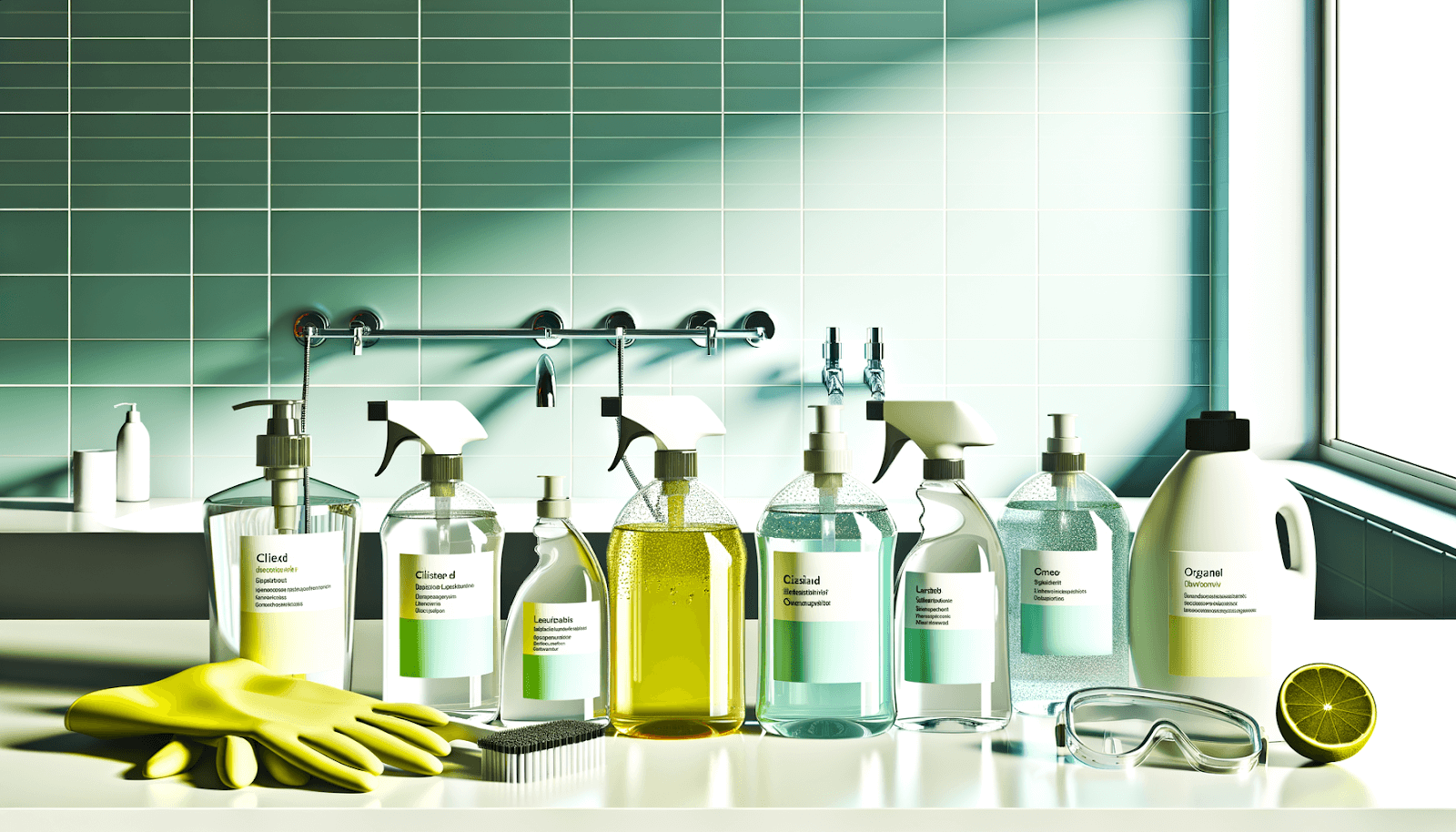
Bathroom Cleaning Chemicals and Hard Water Stains: What Works Best?
G'day folks! If you're anything like me, keeping the bathroom sparkling clean can sometimes feel like a losing battle, especially when those pesky hard water stains seem to hang around like unwanted guests. Let's dive into the world of bathroom cleaning chemicals - what they're made of, how they work, and most importantly, how they can help tackle those stubborn hard water stains.
Understanding Bathroom Cleaning Chemicals
When you're face-to-face with the daunting array of cleaning products at the supermarket, it's important to know a bit about what's inside them. Most bathroom cleaning chemicals are designed to deal with everything from soap scum to limescale and rust, all thanks to their powerhouse ingredients.
Common Ingredients in Bathroom Cleaning Products
The heroes of our cleaning endeavours often include:
Surfactants
Surfactants are like the secret agents of the cleaning world. They work by reducing the surface tension of water, allowing it to better penetrate and lift away dirt. You'll usually find these in concentration ranges of 1-5% in liquids and sprays.
Builders
Builders help surfactants do their job by softening the water and ensuring a stable pH level. Common builders include polycarboxylates or nitrilotriacetic acid, often in lower concentrations.
Acids
- Citric Acid: Great for removing limescale and mineral deposits. It's pretty environmentally friendly, too.
- Lactic Acid: Another mild acid that tackles mineral deposits with ease.
- Phosphoric Acid: Perfect for busting rust and mineral deposits found in the bathroom.
Solvents
Solvents like isopropanol are added to dissolve grease and other stubborn stains, though less commonly at higher concentrations of up to 15% in liquids and 5% in sprays.
Additives
From thickening agents to dyes and fragrances, these elements ensure the cleaner's consistency, appearance, and user-friendliness.
The Power of Bathroom Cleaning Chemicals on Hard Water Stains
Hard water stains, as we know, can be a real pain. Those unsightly white or grey deposits are mainly caused by mineral build-up like calcium and magnesium. Here's where the right bathroom cleaning chemicals can be your best mates.
Targeting Hard Water Stains Effectively
For tackling these stains, here's what you might want to seek out:
- Products with high acid content like lactic or phosphoric acid tend to be effective.
- Surfactants aren't necessarily stain-busters, but they enhance the overall cleaning process.
- Solvents can aid in dissolving these mineral deposits when combined with other ingredients.
Brand Suggestions
Without mentioning specific names, keep an eye out for cleaning brands that promote high acid contents specifically for descaling and stain removal purposes.
Safety First: Using Cleaning Chemicals the Right Way
There's no question about it; safety should always be the priority when dealing with potent chemicals.
General Safety Tips
- Ventilation is Key: Always work in a well-ventilated space to avoid inhaling harmful fumes. Open a window or keep a fan running.
- Protective Gear: Gloves are a must when using harsh chemicals, and goggles can be really sensible too.
- Don't Mix: Mixing different chemicals can be dangerous. Keep it simple and follow the instructions to the letter.
Specific Safety Considerations
Bleach
Bleach is excellent for killing germs but can be harmful if used incorrectly. Avoid mixing it with other products, and maintain good air circulation. If any symptoms like dizziness occur, it’s time to step outside.
Acids
Handle with care. These can be corrosive, so the right protective gear and ventilation are crucial. Always dilute acids per instructions unless using a formula designed for direct application.
Conclusion: Cleanliness with Care
Using bathroom cleaning chemicals can be an efficient method to maintain your bathroom's sparkle, particularly when battling hard water stains. Understanding the ingredients and adhering to safety protocols makes all the difference. Remember, plan your cleaning strategy ahead, check labels, and store products out of kids' reach. With the right approach, your bathroom can be as pristine as any show home.
Happy cleaning, and here's to a streak-free existence!
